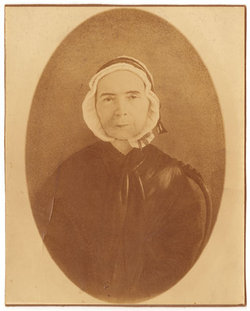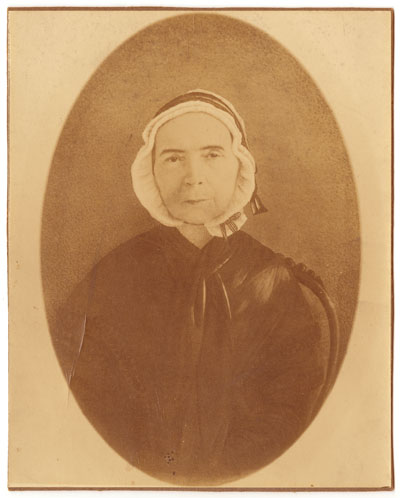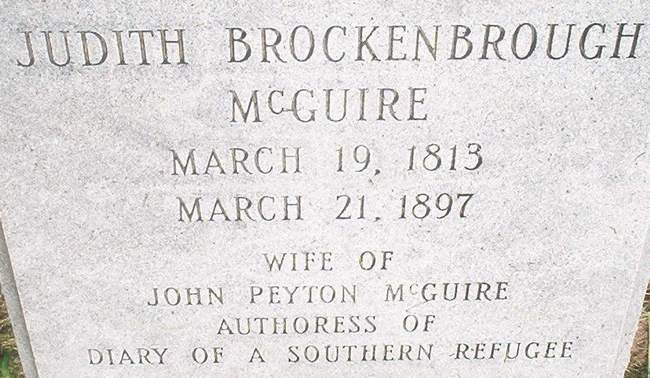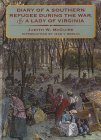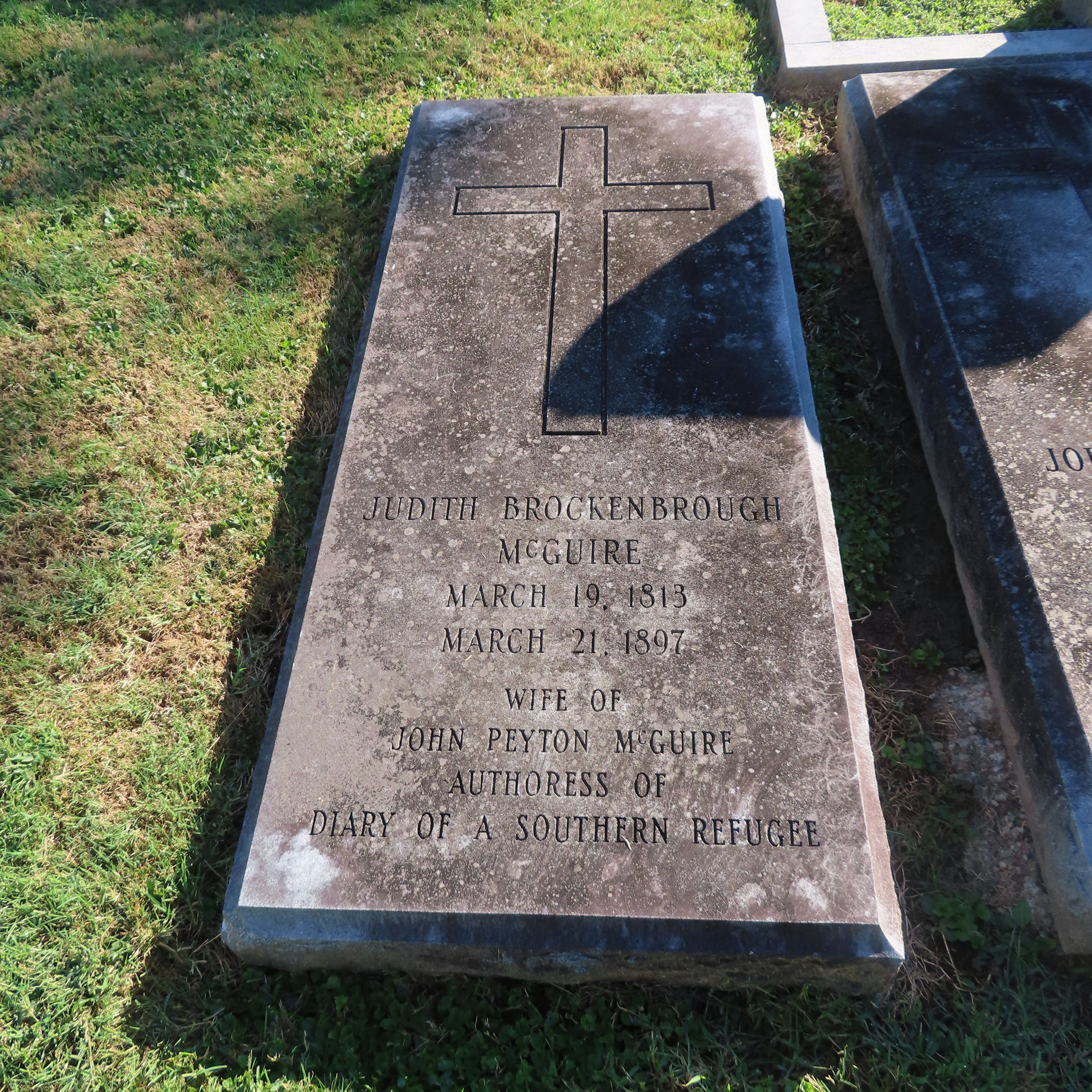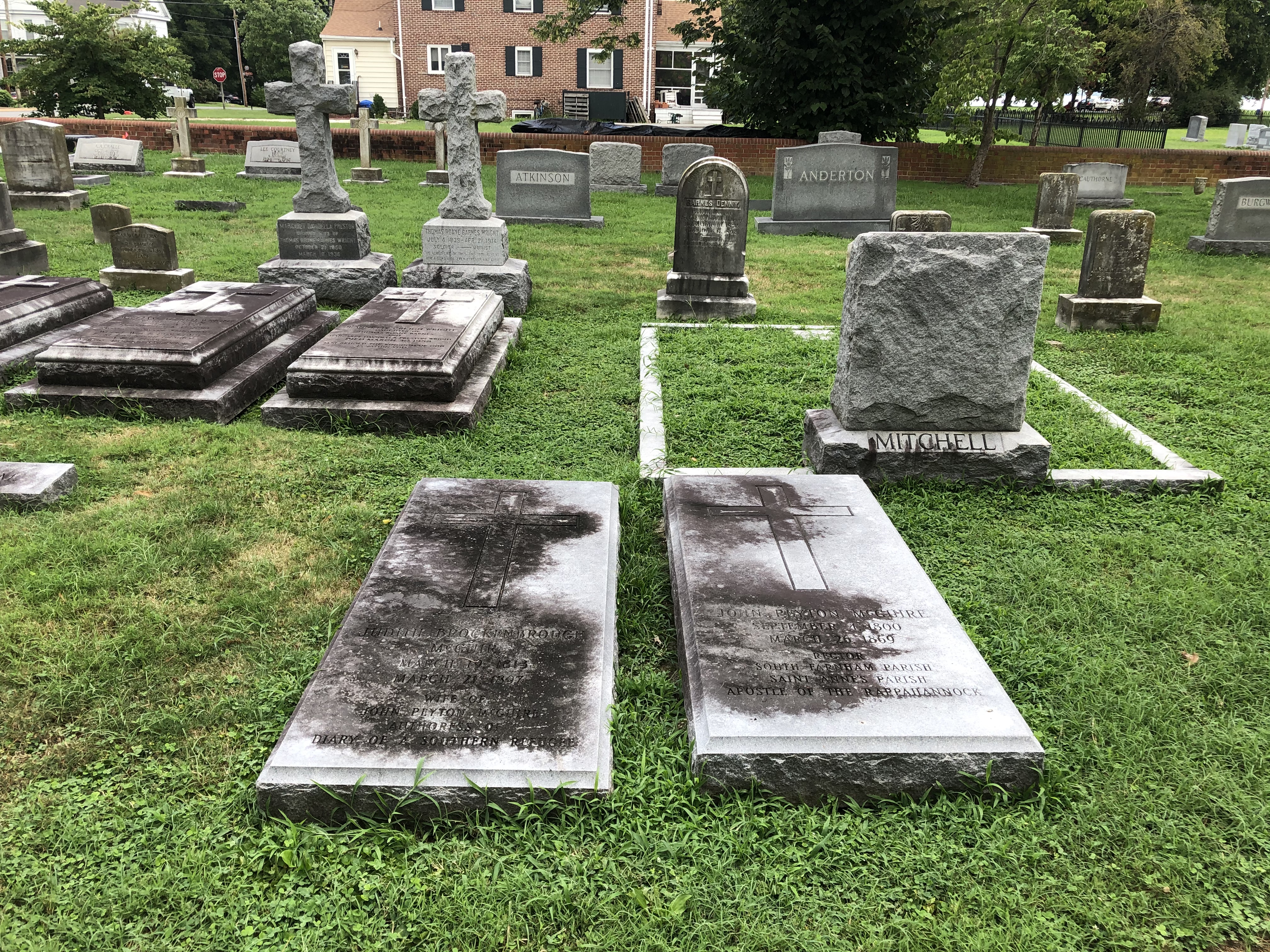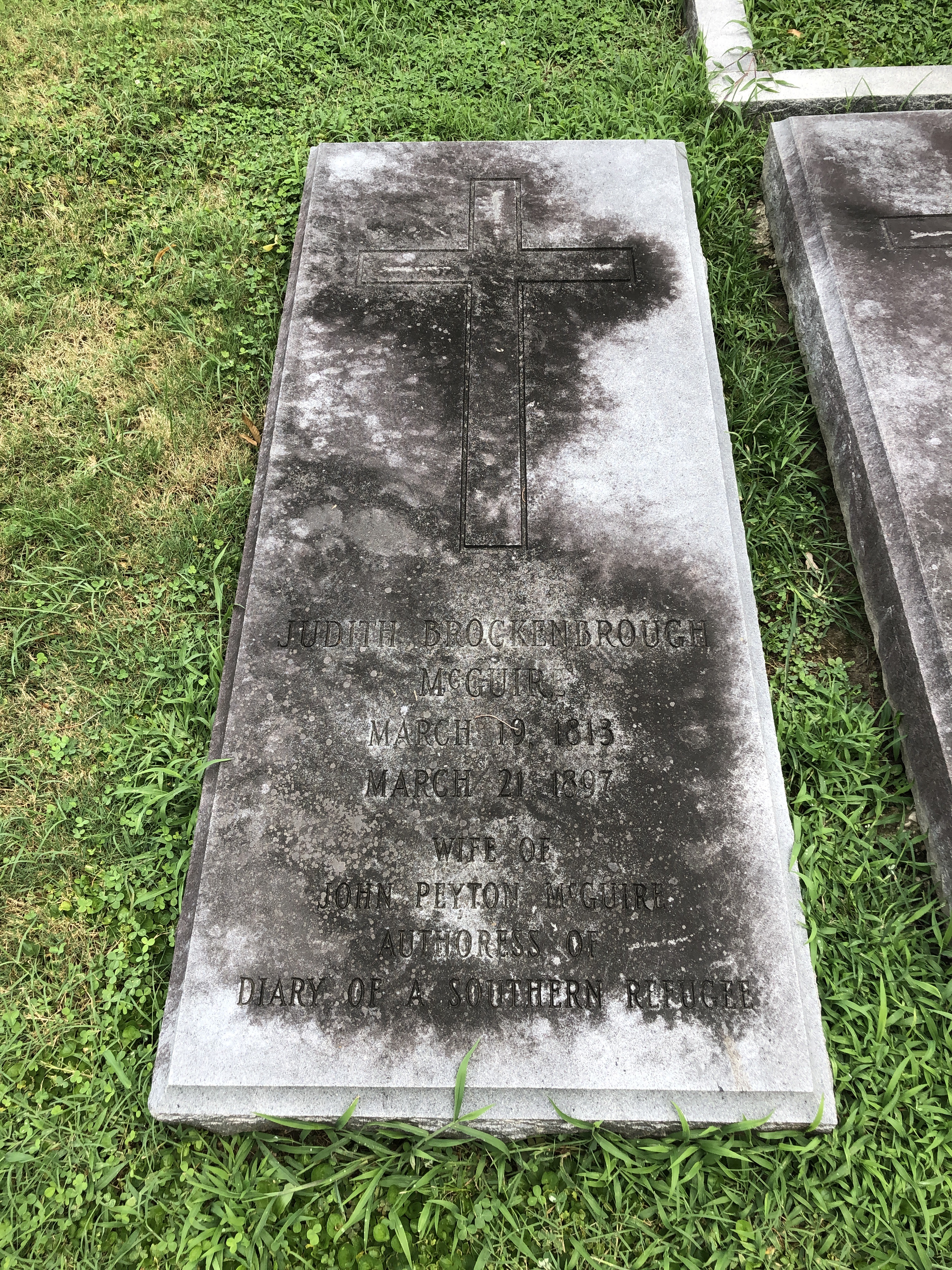Alexandrian Judith McGuire kept a record of her family's experience as refugees from 1861 to 1865. In 1867, her account was published and told of how private citizens were uprooted from their homes and communities, and forced into the civilian workforce to obtain meager sources of support.
Judith McGuire was married to John P. McGuire, an Episcopalian minister and the founder of the Theological Seminary in Alexandria, VA, where he taught until the beginning of the Civil War. He was elected to the state secession committee and voted for separation from the union. Forced to flee on May 24, 1861, the day Alexandria was occupied by Union forces, Judith McGuire and family began their odyssey of taking refuge with various family members across the state. With great regret and sadness, she wrote of her fears for their property in Alexandria.
---------------------------
"There is no probability of our getting home and if we cannot go, what then? What will become of our furniture, and all of our comforts, books, pictures, etc. But these things are too sad to dwell on."
Judith McGuire
*
"With my mind's eye I look first into one room and then another, with all the associations of the past; the old family bible, the family pictures, the library containing the collection of forty years, and so many things which seemed a part of ourselves. What will become of them? Who are now using or abusing them?"
Judith McGuire
September 12, 1861
*
With the weak wartime economy and loss of her husband's pastoral salary, it became necessary for both of them to find work. Employment was scarce as hundreds of displaced persons vied for the same few positions. What modest income was earned went to pay exorbitant rents and inflated prices for every day staples. John McGuire found a post as a postal clerk, then eventually became a hospital chaplain. Judith McGuire received an appointment to the Commissary Department. The couple moved several times during their stay in Richmond, seeking affordable housing. Despite her hardships, Judith McGuire knew her situation was better than most. They never went hungry and did not lack for influential friends or basic necessities as did lower classes without jobs.
"...The number of refugees increases fearfully as our army falls back; for though many persons, still surrounded by all the comforts of home ask why they do not stay and protect their property, my only answer is, 'How can they?' In many instances defenseless women and children are left without means of subsistence; their crops destroyed; their business suspended; their servants gone; their horses and other stock taken off; their homes liable at any hour of the day and night to be entered and desecrated by a lawless soldiery. How can they remain without even the present means of support, and nothing in prospect..."
"There is more unhappiness abroad among our people than I have ever seen before. Sometimes I wish I could sleep until it is over - a selfish wish enough; but it is hard to witness so much sorrow which you cannot alleviate."
Judith McGuire
July 15, 1863
*
Alexandrian Judith McGuire kept a record of her family's experience as refugees from 1861 to 1865. In 1867, her account was published and told of how private citizens were uprooted from their homes and communities, and forced into the civilian workforce to obtain meager sources of support.
Judith McGuire was married to John P. McGuire, an Episcopalian minister and the founder of the Theological Seminary in Alexandria, VA, where he taught until the beginning of the Civil War. He was elected to the state secession committee and voted for separation from the union. Forced to flee on May 24, 1861, the day Alexandria was occupied by Union forces, Judith McGuire and family began their odyssey of taking refuge with various family members across the state. With great regret and sadness, she wrote of her fears for their property in Alexandria.
---------------------------
"There is no probability of our getting home and if we cannot go, what then? What will become of our furniture, and all of our comforts, books, pictures, etc. But these things are too sad to dwell on."
Judith McGuire
*
"With my mind's eye I look first into one room and then another, with all the associations of the past; the old family bible, the family pictures, the library containing the collection of forty years, and so many things which seemed a part of ourselves. What will become of them? Who are now using or abusing them?"
Judith McGuire
September 12, 1861
*
With the weak wartime economy and loss of her husband's pastoral salary, it became necessary for both of them to find work. Employment was scarce as hundreds of displaced persons vied for the same few positions. What modest income was earned went to pay exorbitant rents and inflated prices for every day staples. John McGuire found a post as a postal clerk, then eventually became a hospital chaplain. Judith McGuire received an appointment to the Commissary Department. The couple moved several times during their stay in Richmond, seeking affordable housing. Despite her hardships, Judith McGuire knew her situation was better than most. They never went hungry and did not lack for influential friends or basic necessities as did lower classes without jobs.
"...The number of refugees increases fearfully as our army falls back; for though many persons, still surrounded by all the comforts of home ask why they do not stay and protect their property, my only answer is, 'How can they?' In many instances defenseless women and children are left without means of subsistence; their crops destroyed; their business suspended; their servants gone; their horses and other stock taken off; their homes liable at any hour of the day and night to be entered and desecrated by a lawless soldiery. How can they remain without even the present means of support, and nothing in prospect..."
"There is more unhappiness abroad among our people than I have ever seen before. Sometimes I wish I could sleep until it is over - a selfish wish enough; but it is hard to witness so much sorrow which you cannot alleviate."
Judith McGuire
July 15, 1863
*
Family Members
Advertisement
See more McGuire or Brockenbrough memorials in:
- Saint Johns Episcopal Churchyard McGuire or Brockenbrough
- Tappahannock McGuire or Brockenbrough
- Essex County McGuire or Brockenbrough
- Virginia McGuire or Brockenbrough
- USA McGuire or Brockenbrough
- Find a Grave McGuire or Brockenbrough
Advertisement
